On View
On the 75th Anniversary of the Liberation of Auschwitz, 75 Moving Portraits of Holocaust Survivors Are Going on View in Germany
Photographer Martin Schoeller has captured the portraits of survivors of the World War II atrocities.
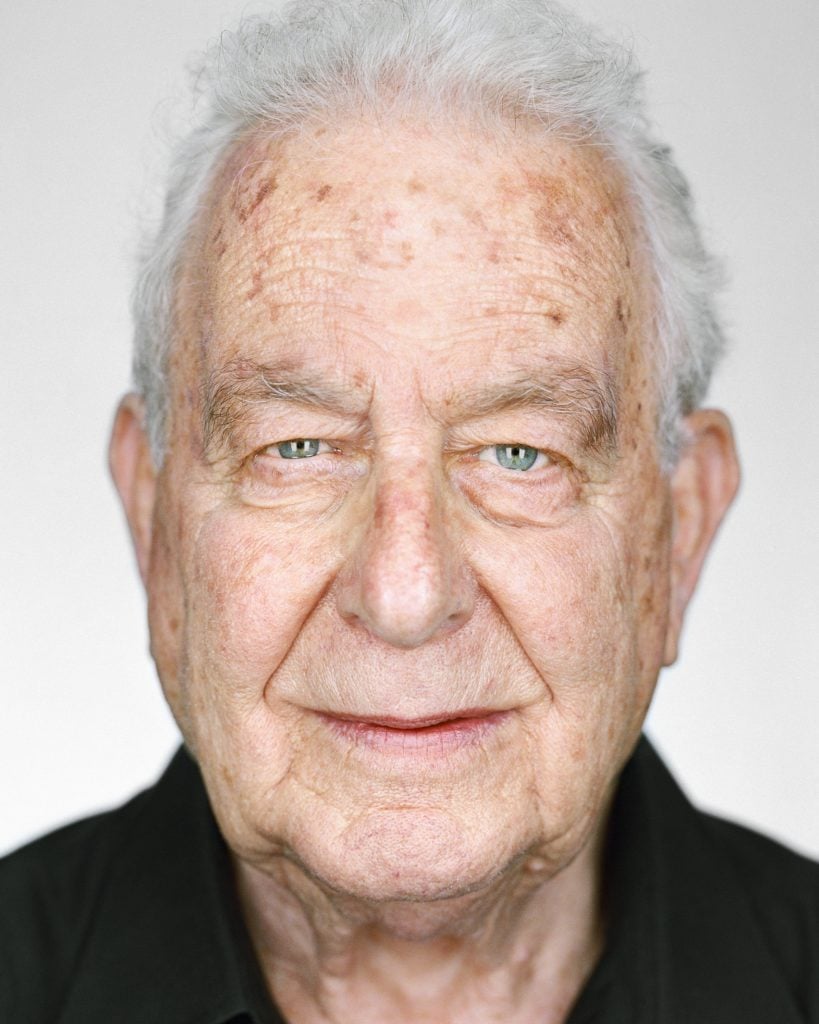
Photographer Martin Schoeller has captured the portraits of survivors of the World War II atrocities.

Kate Brown

When two Russian soldiers arrived to the Auschwitz concentration camp on January 27, 1945, the guards were gone but 7,000 survivors remained, including many children. Now, one of those children, Marta Wise, is among 75 subjects in a poignant new photography exhibition that captures the portraits of Holocaust survivors.
The show, “Survivors – Faces of Life after the Holocaust,” in Essen, Germany, includes 75 recent photographs by the German-born artist Martin Schoeller, who has previously photographed Bill Clinton and Barack Obama, among other notable figures. Schoeller, a former assistant to Annie Leibowitz, photographed survivors between the ages of 80 and 99 who lived through concentration camps during World War II. Schoeller’s hyperrealistic style treats each subject in the same way, almost like a passport photograph—but with a disarming honesty.
German Chancellor Angela Merkel (who has also been photographed by Schoeller) was on hand to inaugurate the exhibition last week when it opened at the Zollverein Coal Mine Industrial Complex in Essen, a world heritage site and former factory. “Survivors” is one of several shows and events planned this year as Europe and the rest of the world commemorates the liberation of the Auschwitz-Birkenau concentration camp in Poland 75 years ago today, on January 27, 1945.
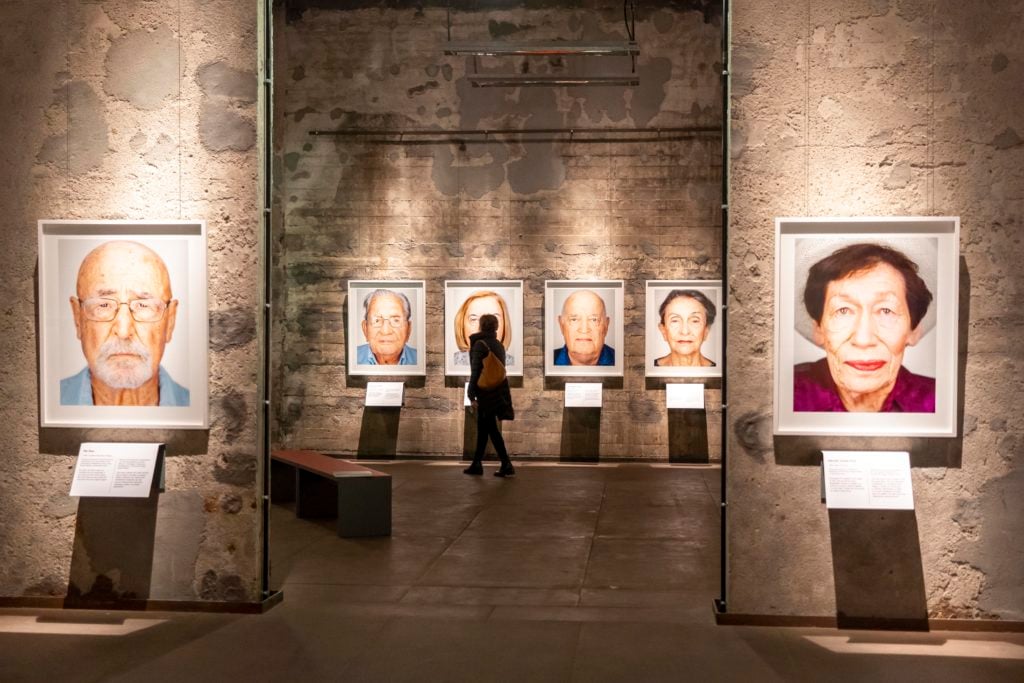
“Survivors – Faces of Life after the Holocaust” exhibition view. © Jochen Tack / Stiftung Zollverein.
Many of the subjects already know each other. They meet regularly with various visitors and youth groups to share their stories and keep the memory of the wartime atrocity alive. Eighty-seven-year-old Naftali Fürst, who survived three Nazi concentration camps and a death march as a child, flew to Germany from Israel for the opening.
“It is so important to undertake commemorative projects like this one,” Fürst said in a statement. “Whoever is still capable of telling their story should continue to do so. It is our obligation, in the name of the men, women, and children who were murdered, to keep telling our stories.”
Some 120 Holocaust survivors from around the world are attending a ceremony today at the memorial site of the former Nazi extermination camp in Poland for the 75th anniversary of the Red Army’s arrival at Auschwitz-Birkenau’s gates. It is likely to be the last gathering of its kind due to the age of most of the survivors.
All the subjects of Schoeller’s images were photographed at Yad Vashem, the center for Holocaust Remembrance in Israel. The industrial location in Essen was chosen for how it added impact to the already powerful images of Schoeller’s subjects. “I grew up with this incredible sense of guilt and shock, which lead me to question my own identity. How could people from my country commit these horrendous crimes?” said Schoeller in a statement. “It’s terrifying to see how anti-Semitism is currently breaking new ground in Europe and elsewhere. And I think we can only move forward as human beings if we are willing to learn from history.”
The exhibition is set to travel after it closes in Essen on April 26, with dates being planned for Toronto and Maastricht.
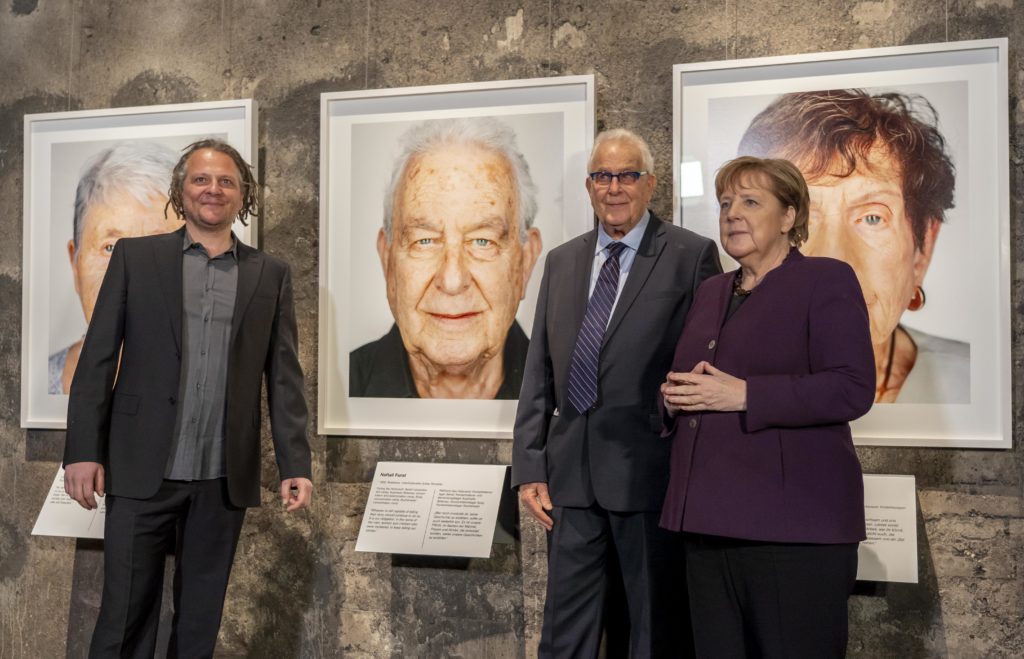
Martin Schoeller, Holocaust survivor Naftali Fürst, and German Chancellor Angela Merkel. © Jochen Tack / Stiftung Zollverein.
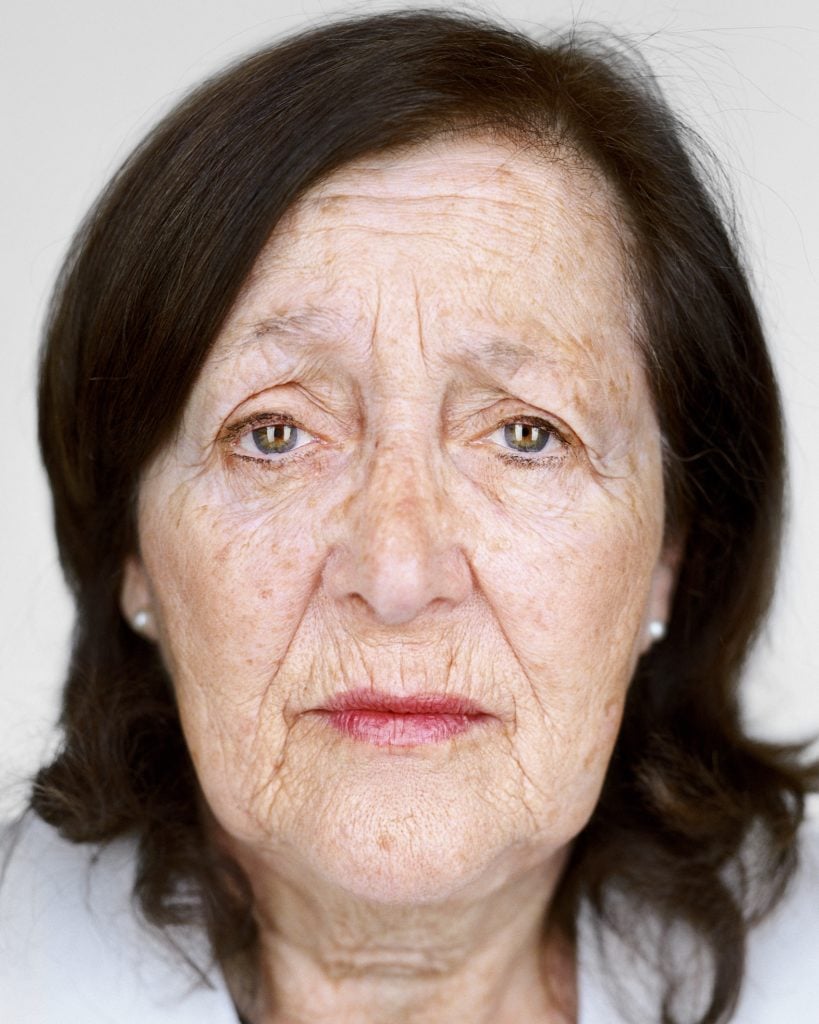
Marta Wise (2019). © Martin Schoeller.
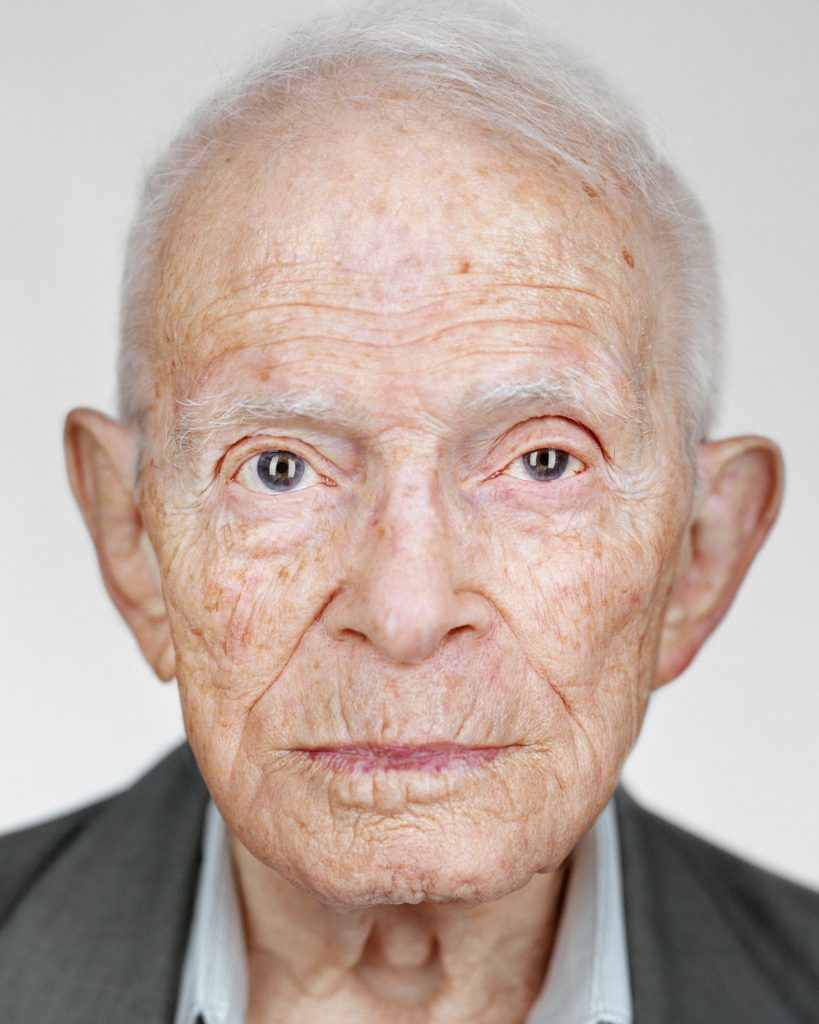
Moshe Ha-Elion (2019). © Martin Schoeller.
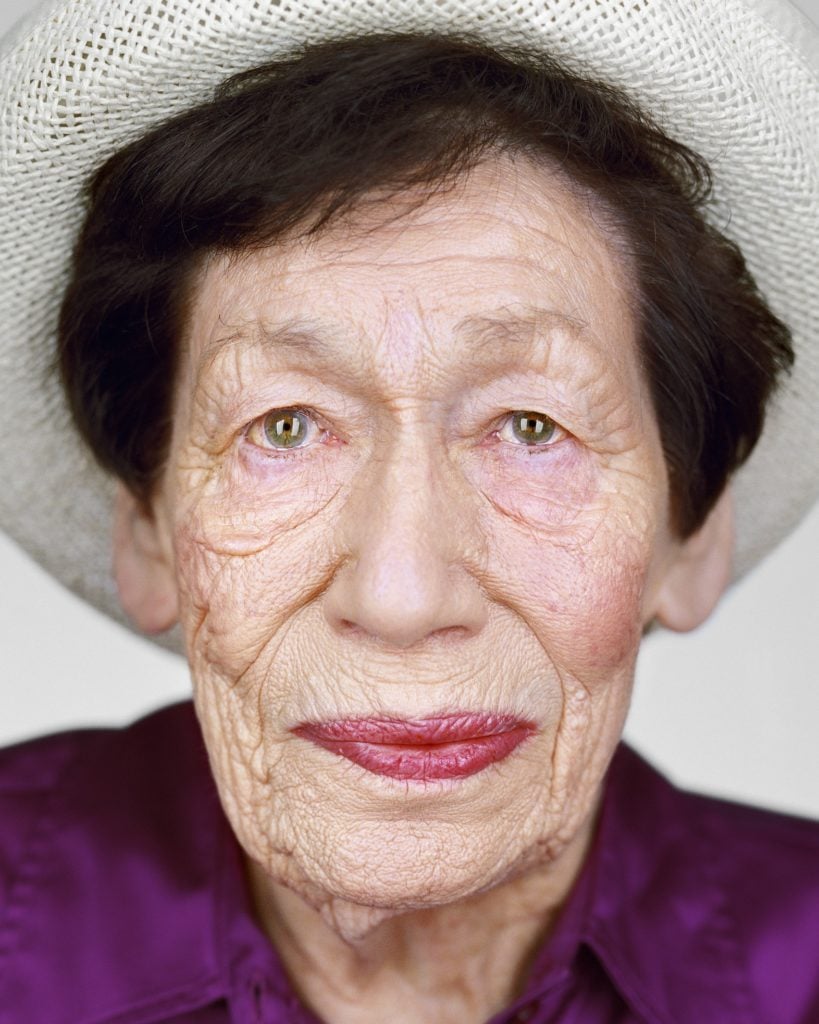
Hannah Goslar Pick (2019). © Martin Schoeller.